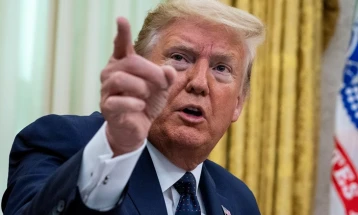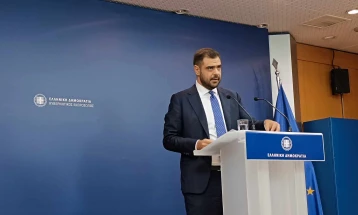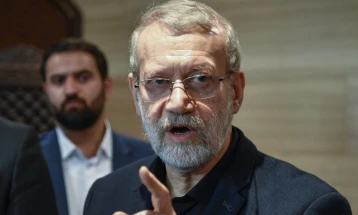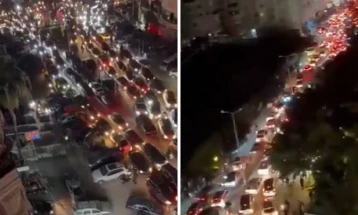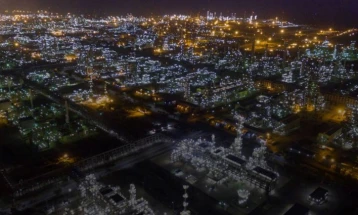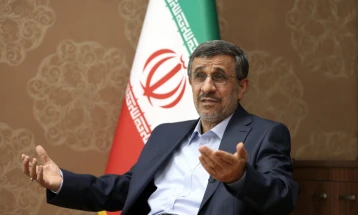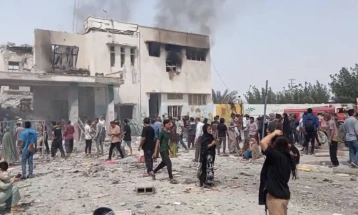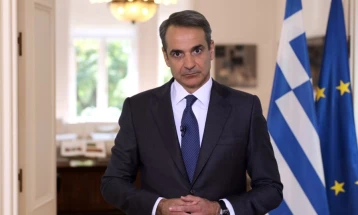EU issues first joint demand for ceasefire in Gaza after October 7
- EU leaders issued their first joint demand for a humanitarian ceasefire and the release of all hostages in Gaza in joint summit statement on Thursday.
- Post By Ivan Kolekevski
- 08:28, 22 March, 2024
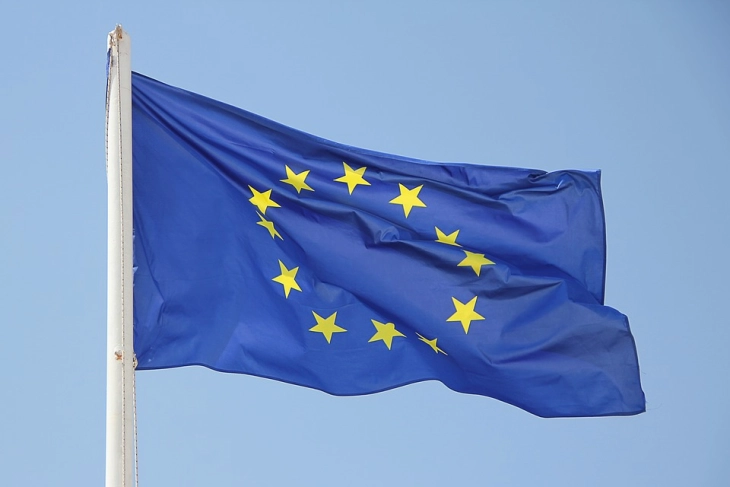
Brussels, 22 March 2024 (dpa/MIA) - EU leaders issued their first joint demand for a humanitarian ceasefire and the release of all hostages in Gaza in joint summit statement on Thursday.
The statement called for "an immediate humanitarian pause leading to a sustainable ceasefire" and repeated condemnations of the Hamas attacks against Israel on October 7.
In the aftermath of the Hamas attacks, EU leaders managed in October to only call together for "humanitarian corridors and pauses" in Gaza to allow aid to reach Palestinian civilians.
European Council President Charles Michel called the statement "strong and unified" on X, formerly known as Twitter.
Ireland, Spain and Belgium pushed for the ceasefire at the summit in Brussels. German Chancellor Olaf Scholz agreed to the calls after previously opposing a ceasefire in October, citing Israel's right to defence against attacks from Hamas.
Pressure was building for the bloc to take a stronger stance on the Israel-Hamas war.
"A ceasefire should have happened a long time ago," said Irish Prime Minister Leo Varadkar who announced on Wednesday that he will step down when a successor is in place.
The EU leaders' demand for a ceasefire in Gaza repeated a call from their foreign ministers that Hungary, viewed as sympathetic to the Israeli government, abstained on.
Varadkar said at the start of the summit that Austria and the Czech Republic were preventing the EU from making a joint call for a ceasefire in the Israel-Hamas war.
Austrian Chancellor Karl Nehammer countered that the EU must recognize the sexual violence carried out by Hamas during the October 7 attacks on Israel.
The statement from EU leaders later said it was "appalled by the sexual violence" during the October 7 attacks, noting UN reports on the issue and supported independent investigations.
EU leaders also called on Israel not to go ahead with a planned ground offensive in the city of Rafah on the Egyptian border, where 1.5 million Palestinians have sought refuge.
United Nations Secretary General António Guterres joined talks in Brussels and urged the EU to support a ceasefire. He warned that civilian casualties in Gaza like in Ukraine must be condemned "without double standards."
EU leaders also explored new ways to support Ukraine against the full-scale Russian invasion with a plan to fund arms purchases with the proceeds of frozen Russian assets under scrutiny.
Multiple European leaders stressed their commitment to supporting Ukraine upon arrival to the summit but caution surrounds the plan.
Neutral Austria's Chancellor Nehammer said he wanted reassurances that if neutral countries endorse using the seized profits, the money will be used to rebuild Ukraine and not to arm it.
"There was originally discussion that it should be invested in reconstruction in Ukraine," Nehammer said. "That seems like a reasonable suggestion to me."
The plan, prepared by EU foreign affairs chief Josep Borrell, would see 90% of the appropriated revenue from frozen Russian assets go to an off-budget EU military aid fund.
The other 10% would be added to the EU budget and used to strengthen Ukraine’s industrial capacity to produce armaments of its own, according to Borrell.
Lithuanian president Gitanas Nausėda said that both the profits and the assets themselves "should contribute not only to reconstruction of Ukraine but also to the defence needs of Ukraine."
However Luxembourg's Prime Minister Luc Frieden warned "the financial stability and the credibility" of the EU needs to be protected. "You cannot just take away somebody's asset," he said, adding "we need to be extremely sure [of] what we are doing."
A proposal from the commission to strengthen the EU's armaments industry by allocating €1.5 billion ($1.6 billion) to joint procurement of military equipment is also set for scrutiny.
Belgian Prime Minister Alexandre de Croo said there would be a debate on how to finance the plan. "It will need to be national contributions, it might be defence bonds, it might be financing by the EIB," de Croo added, referring to the European Investment Bank,
Finnish Prime Minister Petteri Orpo said every EU country will have to “do their share” and “we will have to use all the instruments we have." He noted that Finland and 13 other member states had signed a letter calling for EIB financing.
EU leaders also backed the conditional opening of EU membership talks with Bosnia-Herzegovina.
MIA file photo
